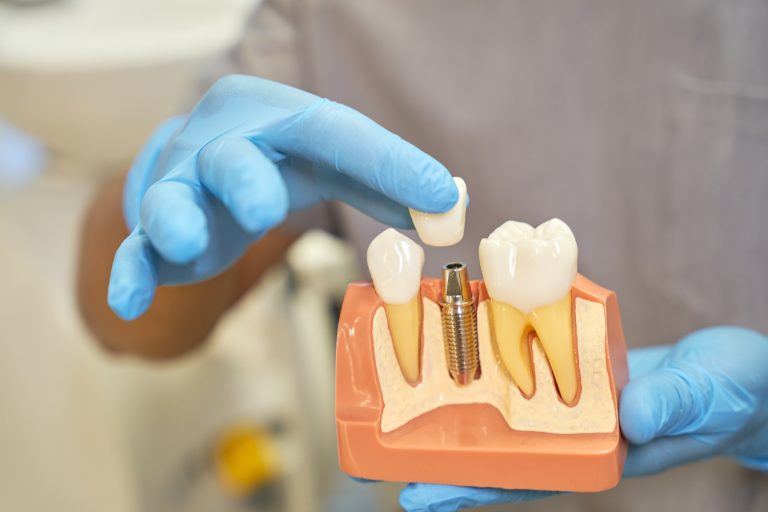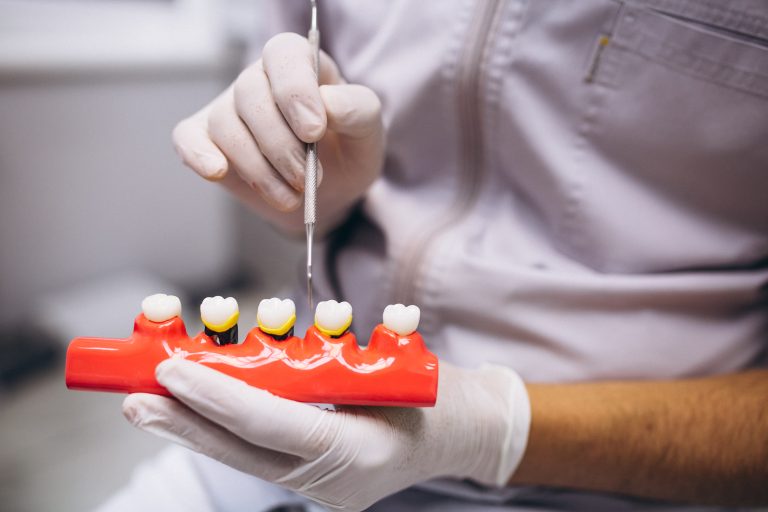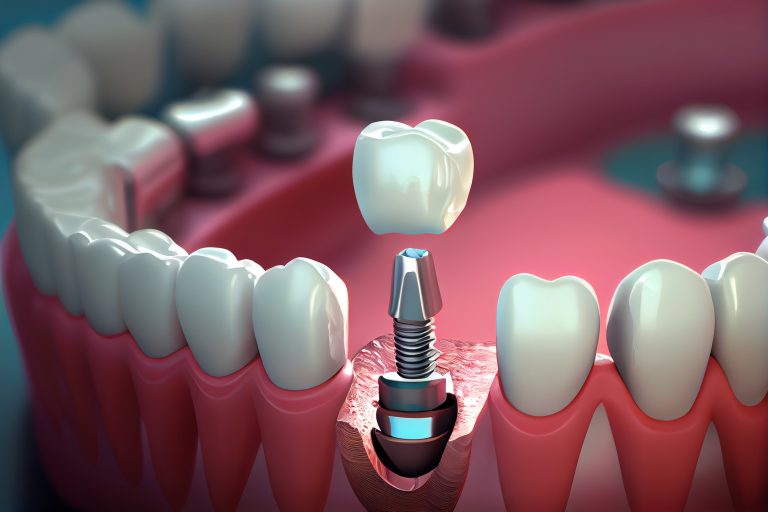


Dental implant treatment has many advantages over other types of dentures. These include a closer feel to natural teeth, preservation of the jawbone and support of the jaw structure, prevention of shifting or damage to other teeth, and better chewing function.
However, dental implant treatment may not be suitable for everyone. Factors such as insufficient jawbone, chronic diseases, or smoking may affect the success of the treatment or prevent the patient from being eligible for treatment. Therefore, it is recommended that people considering dental implant treatment first consult a dentist.
Evaluation and Planning:
The first step is a comprehensive evaluation by the dentist. During this evaluation, factors such as the patient’s oral structure, the condition of the teeth, and the quality and quantity of the jawbone are examined. If necessary, the dentist may perform a more detailed evaluation using imaging techniques such as X-rays, digital tomography, or 3D imaging. The treatment plan is determined according to the patient’s needs and oral structure.
Surgical Implant Placement:
In accordance with the treatment plan, the implants are surgically placed in the patient’s jawbone. This procedure is usually performed under local anesthesia. Implants are usually made of titanium and after being placed in the jawbone, the healing process begins.
Healing Process (Osseointegration):
Implants undergo a healing process that lasts several months to fuse with the jawbone. During this process, the implants fuse with the jawbone and form a solid bond. This process is called osseointegration and ensures that the implant is firmly anchored in the jawbone.
Temporary Tooth Placement (Optional):
During the healing process, a temporary dental prosthesis can be placed to meet the aesthetic and functional needs of the patient. This temporary prosthesis is used to support the healing process on the implant and to ensure that the patient can maintain normal dental functions.
Permanent Tooth Placement:
After the healing process is complete, a permanent porcelain tooth is placed on the implant. This tooth is specially prepared to have an appearance similar to the patient’s natural teeth. The dentist matches the color, shape and size of the tooth with the patient’s other teeth.
Checkups and Maintenance:
After implant dental treatment is completed, regular checkups and maintenance are important. During these checkups, the dentist evaluates the health of the implants and surrounding tissues and, if necessary, directs the treatment accordingly. In addition, the patient is given instructions on implant and dental care.
These steps generally describe the implant dental treatment process. However, each patient may have different needs and the treatment plan is determined individually. Therefore, it is important for those considering implant dental treatment to consult a dentist and create a treatment plan that is appropriate for their situation.
Patient Comments
In our clinic, we are ready to meet all your dental health needs with a warm welcome, transparent communication and superior service quality.
I went to see her about my veneers and cysts had formed under them. I had an implant and now I am very happy. I went to 3-4 dentists before Ms. Esra but they always caused problems and broke my teeth from the roots while putting the veneer on. They finally recommended Ms. Esra and I went and was very happy. She is a very light-handed and knowledgeable doctor who saved all of my teeth with root canal treatment. I recommended her to my relatives and family. Some of my family members also went there.

zü...ç
TR

em...ş
TR
Frequently Asked Questions: “İmplant“
After implant treatment, it is important to have regular dental checkups and practice good oral hygiene to keep the implants healthy. Following the care instructions recommended by your dentist is also important for long-term success.
With good care and regular dental checkups, implants can last a lifetime. However, the durability of implants depends on a number of factors, including personal care and jawbone health.
Implant treatment is usually a multi-step process. First, the implants must be surgically placed into the jawbone. The implants are then allowed to heal until they fuse with the bone. Finally, after the healing process, the prosthetic teeth or bridge are attached to the implants.
In general, those who are in good general health and have adequate jaw bone structure are suitable candidates for implant treatment. However, this may vary for each patient. Therefore, it is important to consult a dentist for implant treatment.
